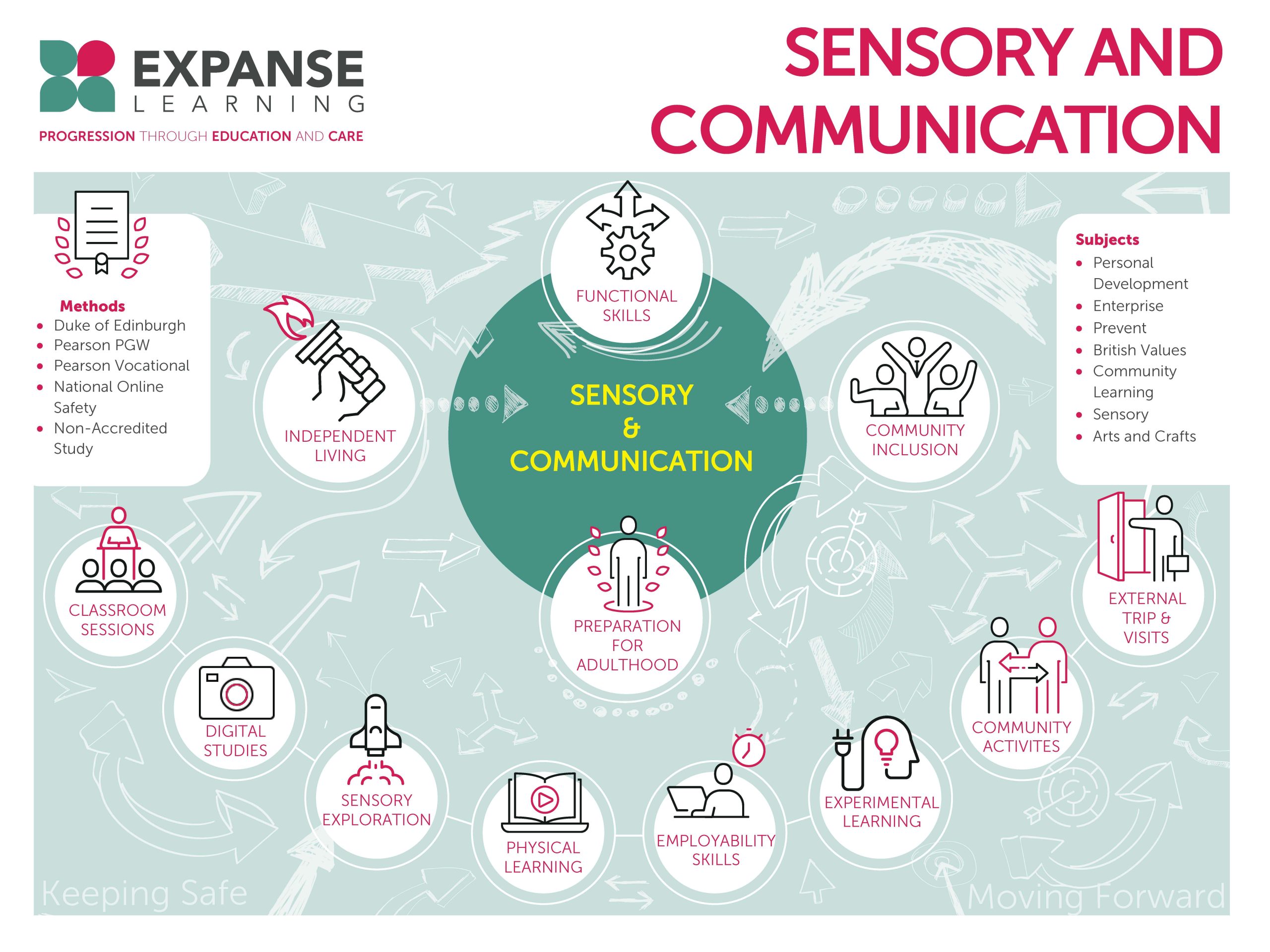Communication and Sensory Pathway
Home » Expanse Learning College » Curriculum » Communication and Sensory Pathway

This Communication and Sensory pathway is designed to meet students’ needs and will be based on a comprehensive holistic assessment undertaken with them individually.
Sessions will be college and community based enabling students to transfer skills beyond their learning environment. Each student will have a personalised programme and timetable and will select subjects that allow them to develop their knowledge, skills and understanding and make progress towards achieving their key EHCP objectives/personal success targets. The programme will enable students to maximise their independence and support their transition into their chosen destination, whilst improving their future quality of life and giving them an increased amount of control in their own home and community.
Pathway Aim
To develop the students’ knowledge, skills and behaviours through a communication and sensory themed curriculum focused on preparing them for adulthood-covering Independent Living Skills, Community Inclusion, Health and Wellbeing and Relationships and Employability.
Pathway Key Objectives
Students will have the opportunity to develop intentional communication in demonstrating preferences and making choices with a wider range of people in a variety of contexts such as: organisational skills, money handling, cooking, baking, being out in the community and personal safety. Students will benefit from high levels of support by working in partnership with dedicated staff and/or specialist equipment, enabling them to establish the most suitable programme of learning.
Key FS Delivery Method
Students will either attend discrete sessions with specialist Functional Skills tutors (delivered to other students of the same level) 1:1 sessions, or they will participate in non-accredited sessions, planned and supported by the Functional Skills tutors but delivered by the class team.
Pathway Transition Routes
Transition pathways for each student will be determined individually, via Annual Review, reflecting their levels of progress and learning. These could include further education via a Preparation for Life and Work-Foundation Level course or transition to a non-educational destination.

